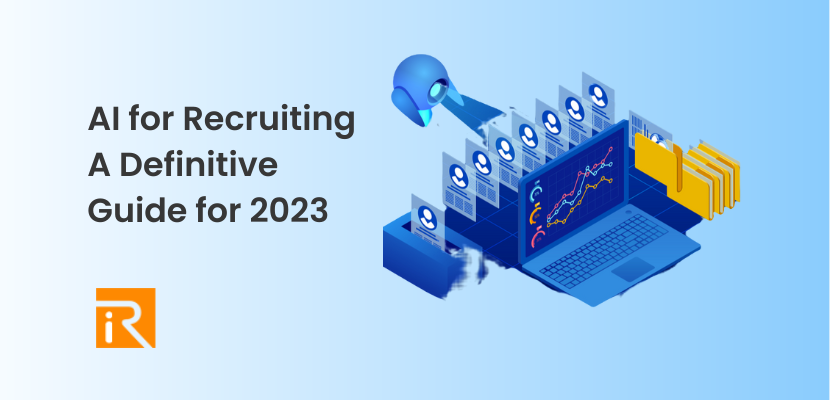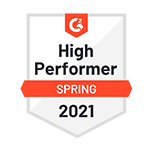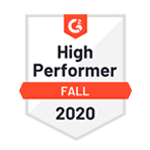In today’s fast-paced and highly competitive job market, companies are constantly seeking innovative ways to streamline their hiring process and find the best candidates for their organizations. One such innovation that has gained significant traction is the use of artificial intelligence (AI) in recruiting. Additionally, AI-powered solutions have the potential to transform the way companies attract, assess, and hire talent. In this article, we will explore the various applications of AI for recruiting, its benefits and challenges, and its impact on the future of the recruitment industry.
What is AI for Recruiting?
AI for recruiting refers to the application of artificial intelligence technologies in the recruitment process to automate and streamline various tasks, enhance decision-making, and improve overall efficiency. Additionally, it leverages advanced algorithms, machine learning, natural language processing (NLP), and data analytics to analyze vast amounts of candidate data, identify patterns, and make data-driven predictions.
AI-powered recruitment tools can assist with various aspects of the hiring process, including resume screening, candidate sourcing, skill assessments, interview scheduling, and even onboarding. Therefore, by automating repetitive and time-consuming tasks, AI allows recruiters and hiring managers to focus on more strategic activities, such as building relationships with candidates and making informed decisions.
The Benefits of AI for Recruiting
Implementing AI in the recruiting process offers numerous benefits for organizations seeking to attract and hire top talent. Let’s explore some of the key advantages:
-
Enhanced Efficiency and Time Savings
AI-powered recruiting tools can significantly reduce the time and effort spent on manual tasks. For example, AI algorithms can quickly scan and analyze thousands of resumes, highlighting the most qualified candidates based on predefined criteria. Additionally, this automation speeds up the screening process, allowing recruiters to focus on engaging with top candidates and improving the overall efficiency of the hiring process.
-
Improved Candidate Sourcing and Matching
Finding the right candidates from a large pool of applicants can be a daunting task for recruiters. AI for recruiting simplifies this process by utilizing intelligent algorithms to search through vast databases of candidates and identify those who closely match the desired qualifications and skills. Additionally, this ensures a more accurate and efficient candidate sourcing process, increasing the chances of finding the perfect fit for the job.
-
Objective Decision-making
Recruiting decisions based on subjective opinions and biases can lead to suboptimal outcomes. Additionally, AI brings objectivity to the table by analyzing candidate data impartially and making decisions based on predefined criteria. Therefore, by removing human biases, organizations can make more objective and fair hiring decisions, leading to a diverse and inclusive workforce.
-
Enhanced Candidate Experience
In today’s competitive job market, providing a positive candidate experience is crucial for attracting and retaining top talent. Additionally, AI-powered tools can automate various touch points throughout the recruitment process, ensuring timely and personalized communication with candidates. Therefore, this creates a seamless and engaging experience, leaving candidates with a favorable impression of the organization, regardless of the final hiring outcome.
-
Data-Driven Insights for Continuous Improvement
AI for recruiting generates a wealth of data throughout the hiring process. Additionally, by leveraging analytics and machine learning, organizations can gain valuable insights into their recruitment strategies, identify areas for improvement, and make data-driven decisions. Therefore, this continuous feedback loop enables organizations to refine their hiring processes over time, optimizing their talent acquisition efforts.
Cons of AI for Recruiting
While there are numerous benefits to using AI for recruiting, there are also several potential drawbacks or cons that should be considered. Here are some of the main cons associated with the use of AI for the recruiting process:
-
Bias and Discrimination
One significant concern with AI for recruiting is the potential for bias and discrimination. If the AI system is trained on biased or incomplete data, it may perpetuate or amplify existing biases in the hiring process, leading to unfair outcomes for certain demographic groups. For example, if historical hiring data is biased against certain genders or ethnicities, the AI system may inadvertently learn and replicate these biases, resulting in discriminatory hiring decisions.
-
Lack of Transparency
AI algorithms used in recruiting can often be complex and difficult to understand. This lack of transparency can make it challenging to identify and address potential issues of bias, discrimination, or unfairness. For example, candidates who are rejected may not receive clear explanations as to why they were not selected, which can lead to frustration and a lack of trust in the recruitment process.
-
Limited Contextual Understanding
AI systems, although capable of processing vast amounts of data, often lack a deep understanding of the nuances of human behavior and context. Additionally, they may struggle to accurately assess certain qualities that are crucial for certain roles, such as creativity, emotional intelligence, or cultural fit. Therefore, this limitation can result in the system overlooking qualified candidates or incorrectly assessing their suitability for a particular position.
-
Ethical Concerns
The use of AI for recruiting raises ethical questions and concerns. For instance, AI systems may collect and analyze vast amounts of personal data, which raises privacy concerns. Additionally, there may be concerns about the consent and transparency of data usage, especially if candidates are not fully aware of how their information is being processed and evaluated.
-
Reinforcing Inequality
The adoption of AI for recruiting can exacerbate existing inequalities. Additionally, access to AI-powered recruitment tools may be limited to larger organizations or those with more resources, creating a potential disadvantage for smaller companies or disadvantaged candidates who do not have access to these technologies. Therefore, this can result in a further concentration of opportunities in already privileged groups and limit diversity in the workplace.
-
Lack of Human Connection
The use of AI for recruiting can create a more impersonal experience for candidates. Automated processes and interactions may lack the human touch and empathy that many candidates appreciate during the hiring process. Additionally, this impersonal approach can negatively impact the candidate experience and employer branding.
Therefore, it is important to note that these cons do not necessarily apply to all AI systems used in recruiting. But many organizations are actively working to address these concerns and develop AI tools that are more fair, transparent, and aligned with ethical considerations.
AI for Recruiting: Enhancing Efficiency and Accuracy
AI technology has opened up new possibilities for recruiters by automating various time-consuming tasks and offering insights that can lead to better hiring decisions. Let’s delve into some of the key areas where AI is making a significant impact in the recruiting process.
-
AI-powered Resume Screening
With the influx of job applications, recruiters often find it challenging to review each resume thoroughly. AI algorithms can analyze resumes at scale, identifying keywords, relevant experience, and qualifications, and presenting the most promising candidates. Additionally, by automating this initial screening process, recruiters can save countless hours, allowing them to focus on more strategic aspects of recruitment.
-
Natural Language Processing (NLP) for Job Descriptions
Crafting compelling job descriptions that attract the right candidates is a crucial aspect of recruitment. AI-powered NLP algorithms can analyze job descriptions and suggest improvements, ensuring they are clear, concise, and appealing to potential applicants. Therefore, this helps companies attract a more diverse pool of candidates and increases the likelihood of finding the right fit for the role.
-
Chatbots for Candidate Engagement
Engaging candidates and providing timely updates throughout the recruitment process is essential for a positive candidate experience. AI-powered chatbots can automate interactions with candidates, answering frequently asked questions, scheduling interviews, and providing real-time feedback. Additionally, this enhances efficiency, reduces communication delays, and leaves candidates with a positive impression of the company.
-
Predictive Analytics for Candidate Assessment
Selecting the most suitable candidates from a large pool is a daunting task for recruiters. AI algorithms can analyze historical data from successful hires, identify patterns, and generate predictive models to assess the likelihood of a candidate’s success in a particular role. Additionally, this data-driven approach minimizes bias and enables recruiters to make more informed decisions, leading to better hires.
-
Video Interviews with AI Analysis
Video interviews have become increasingly popular, especially in remote hiring scenarios. AI-powered video interview platforms can analyze facial expressions, tone of voice, and other non-verbal cues to provide insights on a candidate’s personality traits and suitability for the role. This objective assessment helps recruiters make more accurate judgments and reduces the chances of hiring biases.
-
Talent Sourcing and Passive Candidate Identification
Finding the right talent can be a challenging task, particularly for niche roles. AI tools can scour the internet and social media platforms to identify potential candidates who may not be actively seeking new opportunities. By leveraging AI algorithms to analyze online profiles and behavior, recruiters can discover passive candidates with the desired skills and experience, expanding their talent pool.
-
AI-enabled Onboarding and Employee Retention
AI can also play a crucial role in the onboarding process, ensuring new hires are integrated smoothly into the organization. AI-powered platforms can provide personalized onboarding plans, offer self-paced training modules, and provide real-time feedback to new employees. This personalized approach enhances employee satisfaction, engagement, and ultimately, retention.
Challenges and Ethical Considerations
While AI has immense potential to revolutionize the recruiting process, it is not without its challenges and ethical implications. Let’s explore some of the key concerns associated with AI for recruiting.
-
Bias in AI Algorithms
AI systems are only as unbiased as the data they are trained on. If the historical data used to train the algorithms is biased, it can lead to discriminatory outcomes in candidate selection. To address this issue, it is crucial to ensure that AI algorithms are regularly audited and fine-tuned to minimize bias and promote fairness.
-
Data Privacy and Security
AI-powered recruiting platforms rely on vast amounts of personal data. Ensuring the privacy and security of this data is of utmost importance. Companies must comply with relevant data protection regulations and implement robust security measures to safeguard candidate information from unauthorized access or misuse.
-
Lack of Human Touch
While AI can automate many aspects of the recruiting process, it is essential to strike the right balance between automation and human interaction. Candidates often value personal connections and the ability to communicate with a real person. Companies must ensure that AI-powered solutions augment human capabilities rather than replace them entirely.
-
Skill Set Adaptation
As AI continues to evolve, recruiters and HR professionals need to adapt their skill set to leverage these technologies effectively. It is crucial to invest in training and upskilling to harness the full potential of AI for recruiting.
-
Transparency and Explain ability
AI algorithms can be complex and difficult to interpret. To build trust with candidates and stakeholders, it is essential to ensure transparency in how AI is used in the recruiting process. Companies should provide clear explanations of the factors considered by AI algorithms and offer avenues for candidates to seek clarification or challenge decisions.
-
Impact on Job Market Dynamics
The widespread adoption of AI for recruiting may disrupt certain job roles traditionally carried out by recruiters. However, it is important to recognize that AI can create new job opportunities, such as AI specialists, data analysts, and ethics consultants. It is crucial to prepare the workforce for these shifts and provide avenues for reskilling and upskilling.
Future Trends in AI Recruitment
-
Natural Language Processing (NLP) for Enhanced Candidate Screening
One of the key future trends in AI recruitment is the application of natural language processing (NLP) in candidate screening. NLP allows machines to understand and analyze human language, enabling recruiters to automate the screening process effectively. By using NLP, recruiters can scan resumes, cover letters, and online profiles to identify the most relevant candidates based on specific criteria. This trend will significantly reduce manual effort and enhance the efficiency of candidate screening.
-
Predictive Analytics for Talent Acquisition
Predictive analytics is another future trend that holds immense potential for AI recruitment. By analyzing historical data, recruiters can predict future hiring needs, identify high-performing candidates, and optimize their talent acquisition strategies. Predictive analytics can help organizations make informed decisions, allocate resources effectively, and proactively address talent gaps. It enables recruiters to be proactive rather than reactive in their hiring approach.
-
Virtual Reality (VR) and Augmented Reality (AR) for Immersive Hiring
As technology continues to advance, virtual reality (VR) and augmented reality (AR) are set to revolutionize the hiring process. These technologies offer immersive experiences, allowing candidates to showcase their skills and interact with virtual environments. VR and AR can be utilized for assessing technical abilities, simulating job-related scenarios, and conducting remote interviews. They provide a unique opportunity to evaluate candidates’ capabilities in a realistic and engaging manner.
-
Chatbots for Seamless Candidate Engagement
Chatbots are becoming increasingly prevalent in the recruitment industry, and their role is poised to expand in the future. These AI-powered assistants can engage with candidates, answer their queries, and provide real-time updates on the recruitment process. Chatbots ensure consistent communication, improve candidate experience, and free up recruiters’ time for more strategic activities. As AI technology evolves, chatbots will become even more sophisticated, offering personalized interactions and intuitive responses.
-
Bias Detection and Mitigation in Hiring
AI has the potential to address bias in the recruitment process. By leveraging machine learning algorithms, organizations can identify and mitigate unconscious bias at various stages of hiring. AI can analyze patterns in historical data to detect biases in job descriptions, resume screening, and candidate evaluation. This trend ensures fair and equitable hiring practices, fostering diversity and inclusion within organizations.
-
Automated Video Interviewing for Efficient Candidate Evaluation
Video interviewing has gained popularity in recent years, and AI is set to make it even more efficient. Automated video interviewing platforms use AI algorithms to analyze candidates’ facial expressions, body language, and speech patterns. Additionally, this analysis provides recruiters with valuable insights into candidates’ soft skills, communication abilities, and cultural fit. Automated video interviewing saves time, enables remote assessments, and enhances the accuracy of candidate evaluation.
Conclusion
Consequently, AI for recruiting is transforming the way companies attract, assess, and hire talent. From automating resume screening and improving job descriptions to enhancing candidate engagement and providing data-driven insights, AI-powered solutions offer numerous benefits. However, it is crucial to address challenges such as bias, data privacy, and the need for human interaction. Therefore, by navigating these challenges and leveraging AI technologies responsibly, companies can revolutionize their hiring process and gain a competitive edge in the evolving job market.
For revolutionize recruitment, visit recruitBPM.
FAQs
Q1: How does AI improve the efficiency of the recruiting process?
AI automates tasks like resume screening, candidate engagement, and video interview analysis, reducing the time and effort required from recruiters. Additionally, it also provides data-driven insights for better decision-making and streamlines talent sourcing.
Q2: Can AI eliminate human bias in the recruiting process?
It is important for us to ensure that we train the algorithms on unbiased data and regularly audit them to avoid perpetuating existing biases. Additionally, human oversight and intervention are crucial to ensure fairness.
Q3: What are the key considerations for implementing AI in recruiting?
Companies should prioritize data privacy and security, transparency in algorithmic decision-making, and maintaining a balance between automation and human interaction. Additionally, reskilling and upskilling of HR professionals is also important for effectively leveraging AI technologies.
Q4: Does AI replace recruiters and HR professionals?
AI complements recruiters and HR professionals by automating repetitive tasks and providing data-driven insights. Additionally, it enhances their efficiency and allows them to focus on strategic aspects of recruitment. So, human involvement and judgment remain essential in the hiring process.
Q5: How can AI impact employee retention?
AI-powered onboarding platforms can personalize the onboarding experience and provide continuous feedback, leading to higher employee satisfaction and engagement. This, in turn, improves employee retention rates.
Q6: What are the ethical implications of AI for recruiting?
Ethical considerations include addressing bias in algorithms, ensuring data privacy and security, maintaining transparency in decision-making, and providing avenues for candidates to seek clarification or challenge decisions.
Q7: How will AI for recruiting will impact the role of recruiters in the future?
AI will augment recruiters’ capabilities by automating repetitive tasks, providing data-driven insights, and enhancing decision-making. Therefore, recruiters will focus more on strategic activities such as building relationships, employer branding, and talent development.






















